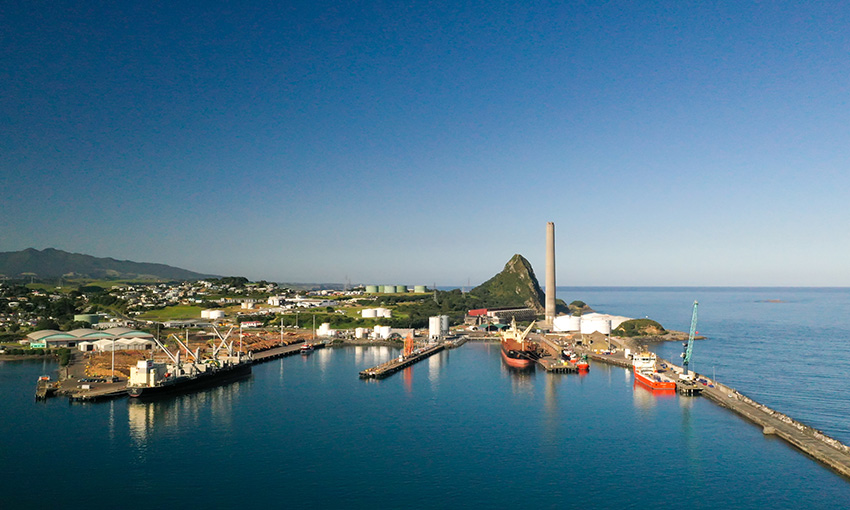NEW Zealand’s Port Taranaki has released its financial results for the 2023-24 year (FY24) ending 30 June 2024, acknowledging diminished results after a challenging year.
Port Taranaki recorded net profit after tax (NPAT) of NZ$6.88 million in FY24, down from the previous year’s all-time port record of NZ$13.87 million.
Port Taranaki revenue was NZ$54.01 million, decreasing NZ$3.42 million from the NZ$57.43 million seen in FY23.
Operating expenses were up NZ$2.44 million to NZ$32.41 million, driven primarily by increased personnel costs and higher insurance costs, the port says.
This increase was slightly offset by repairs and maintenance costs dropping from NZ$4.21 million to NZ$4.13 million.
The port says challenging economic and market conditions, and production difficulties in the energy sector combined to impact Port Taranaki’s results for the FY24 year.
Port Taranaki’s chief executive Simon Craddock said, “The result is lower than we budgeted, but it is a reflection of difficult production and trading conditions for many of our customers, particularly in the energy sector, and the challenging economic conditions that have seen our costs increase”.
“High interest rates and inflation, increased insurance costs, reduced gas production, lower log export volumes, and increased operational costs, have all combined to impact our result.”
Further adding to the port’s financial difficulties was a change in New Zealand’s tax law, which saw the Government remove tax deductions of industrial and commercial buildings with original estimated lives of 50 years or more, according to the port.
“Without that change, NPAT would have been NZ$8.59 million, while it’s also important to note that the (FY23) result was boosted by some extraordinary non-trade revenue, including an insurance payout related to Cyclone Dovi,” Mr Craddock said.
Trade volumes at the port also flagged, with total trade volume at 3.91 million tonnes for FY24, down 16.6% or 788,000 tonnes from 4.69 million tonnes the previous year.
Bulk liquids trade was also down by 23.4%, or 659,000 tonnes, to 2.16 million tonnes for the year.
Methanol, the largest trade through Port Taranaki, dropped a considerable 25.1%, or 429,000 tonnes, to 1.28 million tonnes from 1.71 million in FY23, marking the lowest volume of methanol through the port since 2012.
Crude oils trade at 655,000 tonnes was also 18% down on the previous year.
Mr Craddock said the energy sector has traditionally been the port’s largest contributor to overall trade, but the decline in gas and condensate reserves and production had significantly impacted its bulk liquids trade in FY24.
“Energy security is a real issue, and the economic damage from high energy prices is an increasing concern. In recent months, it is a problem that has been put on industry, the largest users of gas and electricity, to alleviate.
Mr Craddock added that Methanex NZ, the port’s largest customer, reduced production earlier this year, and has now ceased methanol production for a period to provide gas to electricity generators.
“We recognise that this decision has been borne out of necessity, through a combination of a dry year for electricity generation and the decline in gas reserves, while significant development expenditure on existing oil and gas fields has not produced the expected results” he said.
Port Taranaki chair Jeff Kendrew said the outlook for the 2024-25 year was for more supply difficulties in the energy sector, resulting in lower bulk liquids and a fall in overall trade to approximately 3.2 million tonnes.
“While the near term is challenging, there is cause for optimism, with opportunities for new trade and support work in the future” he said.





